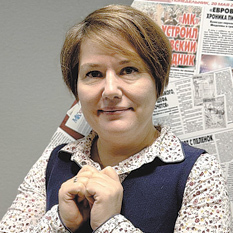Deputies propose expanding the circle of recipients of benefits for low-income families

Deputy Nina Ostanina proposed expanding benefits for low-income families
The Committee on Family, Fatherhood, Motherhood and Childhood proposed expanding the circle of recipients of the single benefit by including families whose income exceeds the subsistence minimum determined in the region of their residence by at least 10%. A corresponding request was sent to the Prime Minister Mikhail Mishustin.

The author of the initiative was deputy Nina Ostanina. The parliamentarian believes that with growing inflation and current economic realities, more and more families need financial support from the state. And often the question of whether or not to receive a benefit is only 100 rubles.
The circle of recipients of the single benefit includes low-income families. Their right to receive a cash payment is determined as follows: the total annual income is divided by the number of family members. If the quotient is less than the subsistence minimum adopted in the region of their residence, then a monthly benefit is assigned. If it is higher, then the family is not recognized as low-income, which means that no payments are received. The price of the issue is quite high. For example, in Moscow, the single benefit can be from 8 to 17 thousand per child, depending on the amount of family income.
- The assessment of needs should be more flexible and fair, - the deputy believes. - The current requirements raise many questions among families in difficult life situations. After all, with a slight excess of the average per capita income, families cannot apply for state support.
The problem of 10% is especially acute in families raising a disabled child. Mothers and fathers receive increased benefits, but this money is spent on rehabilitation. And there is no longer enough money for everyday needs - food, clothing, education. "You have to choose the most important thing or constantly limit yourself," said parents raising children with special needs.
Among the opponents of the initiative, there are traditional concerns about getting families hooked on subsidies. "Large benefits will discourage parents from looking for work, building their career strategy, and developing socially and materially," say critics of the deputy's proposal.
mk.ru







